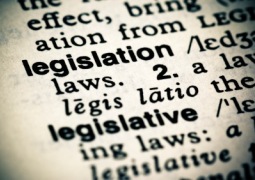
A member of the public, Mr Zenani France Sibanyoni, today lobbied the Select Committee on Petitions and Executive Undertakings on the idea of developing a State and State Corporation Advertising Agency Bill.
Mr Sibanyoni believes that this could be a lucrative advertising platform to acquire extra funds for effective, timeous and professional public service delivery. The petition submitted puts forward a draft bill, which would allow the public to advertise on government platforms, including government websites, government-owned billboards, utility bills and salary advises of government officials.
Briefing the committee, Mr Sibanyoni said that government has about two million civil servants, but there are no advertisements on salary advice slips. Businesses interested in advertising on these salary advices could be charged as much as R10 per slip, or whatever suitable amount identified he said. He also identified the advertising potential of home affairs offices, police stations and municipal buildings where large amounts of human traffic is guaranteed.
According to the draft bill, the envisaged state-owned enterprise would form part of the Ministry of Public Enterprises and be financed by the national budget, advertising revenue, and by raising loans.
Mr Sibanyoni today sought the intervention and assistance of the committee to introduce the Draft State and State Corporations Advertising Agency Bill and the intervention of the National Council of Provinces to assist with introducing this draft bill so that it could eventually be adopted by both Houses and then enacted as legislation.
Inputs from both communications departments made reference to the bulk buying advertising agency, which resides in the Government Communication and Information System (GCIS). Officials said that they will have to look at things such as the emergence of fourth industrial revolution - advertisers are going online, the unavoidable phasing out of the print media and the duplication with the GCIS’s roles and responsibilities.
Department of Trade and Industry (DTI) officials echoed these sentiments, but agreed that there is merit in looking at the idea, which will have to include independent advertising regulators. Further requirements which will have to be addressed, as pointed out by DTI officials, include compliance with procurement and treasury regulations, assessing the advertising legal framework on which the is the bill based, and consultations with various stakeholders who will be able to provide valuable input on the proposed legislation.
The committee welcomed the petition, but said a compelling business case needs to be put in place, backed by research. The DTI is mandated to assist the petitioner with this. The committee thus requested that the communications, trade and industry, and public enterprises committees assist Mr Sibanyoni by evaluating the viability of the idea, which has been placed on record for the sixth Parliament to decide on.
Felicia Lombard
20 February 2018

